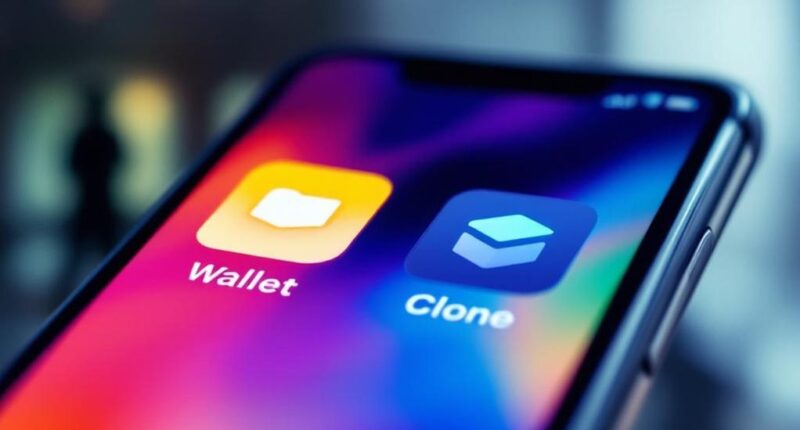Why do hackers continue to target crypto wallets with increasingly sophisticated clone scams?
The answer is simple: it works.
As cryptocurrency adoption grows, scammers have refined their tactics, creating fake interfaces that mirror popular wallet apps with startling accuracy.
The digital arms race intensifies as scammers craft wallet clones so convincing even experts pause before clicking.
These digital doppelgangers, distributed through phishing websites and even legitimate app stores, have become nearly indistinguishable from the real thing.
The mechanics are deceptively straightforward.
Users download what appears to be their trusted wallet app, only to find themselves entering seed phrases or private keys into what amounts to a digital vacuum cleaner for crypto assets.
It’s like handing a stranger your house keys, alarm code, and a detailed map of where you keep the valuables – except the robbery happens at the speed of electrons.
WalletConnect, Seaport, and Coinbase protocol frequently appear as targets for these digital masquerades.
Scammers have even elevated their game with deepfake videos featuring manufactured testimonials from fake Web3 startups to lure victims into their traps.
The first half of 2025 has already seen approximately 3.1 billion dollars lost to various scams and hacks, highlighting the urgency of improved security measures.
The ongoing professionalization of cybercrime has transformed these operations from individual hackers to sophisticated criminal enterprises with specialized roles and advanced techniques.
Protection begins with hygiene – digital hygiene, that is.
Only download wallet applications from official websites or verified sources.
Scrutinize developer names for those telltale signs of impersonation: misspellings, extra characters, or suspicious variations.
If “MetaMask” suddenly appears as “MetaMásk,” your alarm bells should ring louder than a New Year’s Eve celebration.
Hardware wallets provide significant protection against these threats, keeping private keys offline where clone wallets can’t reach them.
Multi-factor authentication adds another fortress wall between your assets and would-be thieves.
Before any transaction, double-check addresses independently using blockchain explorers.
Address poisoning – where scammers inject fake addresses into your transaction history – has become increasingly common.
The battle between security and scammers evolves daily.
Stay informed by following blockchain analysis firms and wallet security teams that track emerging threats.
Staying vigilant against these sophisticated scams is essential to safeguard your cryptocurrency investments from increasingly creative criminals.









